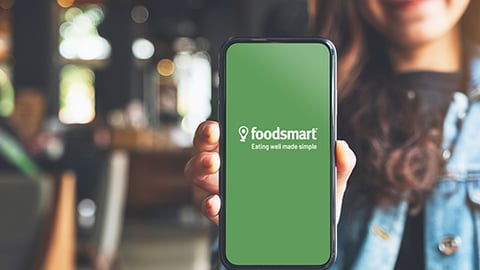More Grocers Embrace Food-as-Medicine Programs
Brands and grocers may be spending a lot of time thinking about technologies like artificial intelligence, but they are running a parallel track focusing on human health and nutrition. A new survey of retailers and product suppliers conducted for FMI - The Food Industry Association affirms that the ultimate goal of providing shoppers with personalized solutions also includes efforts to help them eat and live in a healthy way.
According to the "2024 Report on Food Industry Contributions to Health & Well-Being," 70% of those surveyed said they have nutrition, health and well-being strategies in place. About two-thirds (63%) identified disease prevention and health promotion as top areas of focus for their programs over the next two years. Moreover, many view health and wellness through a broader lens, involving all stakeholders in their operation: 84% of food retailers have deployed such activities for both their customers and their employees.
[RELATED: The Food as Medicine Trend at Retail]
The strategies for nutrition, health and well-being vary, of course, by business type. Across the board, though, the FMI report found growing interest in food-as-medicine programs. Those programs include personalized nutrition education solutions that work with prescription programs and medically tailored nutrition, involving teams like retail dietitians, pharmacists and various store department leaders. According to the survey, 65% of respondents offer incentive programs that include coupons, vouchers or rebates while 96% deploy marketing tactics like signage, displays, nutrition attribute labeling, cooking demos and ad media promotions.
The momentum for targeted food-as-medicine efforts – which make grocery stores destinations for sustenance as well as health care – is evident in the finding that 39% of food industry companies are currently implementing food or product prescriptions and 30% are pursuing medically tailored nutrition, including food and meal programs.
Food-as-medicine programs, like other health and well-being initiatives, not only provide a more integrated approach for consumers but also help unite different functions within retail and food companies, from department leaders to pharmacy staff to nutritionists. “Breaking down silos is a continuing trend,” said Krystal Register, a registered and licensed dietitian nutritionist and FMI’s senior director of health and well-being, during a recent webinar detailing the findings.
More industry organizations are adding more health professionals to their teams, too. The survey revealed that 36% of food retailers employ registered nurses, up from 20% in 2021; 14% of food retailers have nurse practitioners on staff, 8% more than in 2021; and 14% of food retailers have hired medical doctors, up from 4% in that same time frame.
A strong majority of 82% of retailers and product suppliers employ registered dietitians. FMI's Register told Progressive Grocer that these team members work closely within and beyond their companies to help improve their lifestyles, often helping bring innovative products to shelf and to carts. “We’re seeing registered dietitian nutritionists (RDNs) involved in all areas of food retail and supplier operations including product innovation, particularly when it comes to private brands. These RDNs are working to help make healthful, nutrient-rich food choices personal, fun and inviting,” she explained. “At the same time, RDNs are also supporting health and well-being programming that provides so much more than just food products. For example, many retailers offer creative classes specifically tailored for kids, store tours geared towards making healthy food fun and science-based nutrition education taking place right in the aisle. This programming helps inform shoppers’ habits for the long-term.”
Cross-industry collaboration is another trend as grocers increasingly become resources for holistic living and as food companies aim to deliver on what consumers are seeking in their wellness journeys. FMI’s survey found that more than half (54%) of food companies plan to partner with allied health organizations, like the American Heart Association and nearly half (46%) intend to team up with health insurance providers.











